Traditional delicacies in Nigeria
Nigeria is known for its rich and diverse culinary traditions, with a wide array of traditional delicacies that vary across different regions and ethnic groups. Here are some popular traditional delicacies in Nigeria:
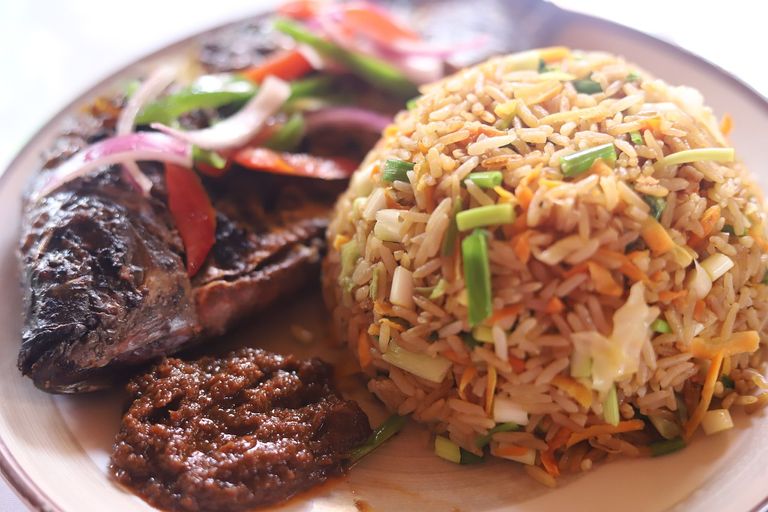
source
Jollof Rice: Jollof rice is a widely loved and iconic Nigerian dish. It is made by cooking rice in a flavorful tomato-based sauce with a variety of spices and vegetables. Jollof rice is often served at special occasions and is a staple at social gatherings.
Egusi Soup: Egusi soup is a popular Nigerian soup made with ground melon seeds. It is typically cooked with vegetables, meat or fish, and seasoned with various spices and condiments. Egusi soup is commonly enjoyed with fufu, pounded yam, or eba (garri).
Pounded Yam and Egusi: Pounded yam is a starchy staple food in Nigeria. It is made by boiling yam tubers and pounding them into a smooth, dough-like consistency. Pounded yam is often served with egusi soup or other traditional Nigerian soups.
Suya: Suya is a delicious Nigerian street food that consists of skewered and grilled meat. The meat, usually beef, is seasoned with a blend of spices including peanut powder, chili powder, and other flavorings. Suya is often served with sliced onions and tomatoes.
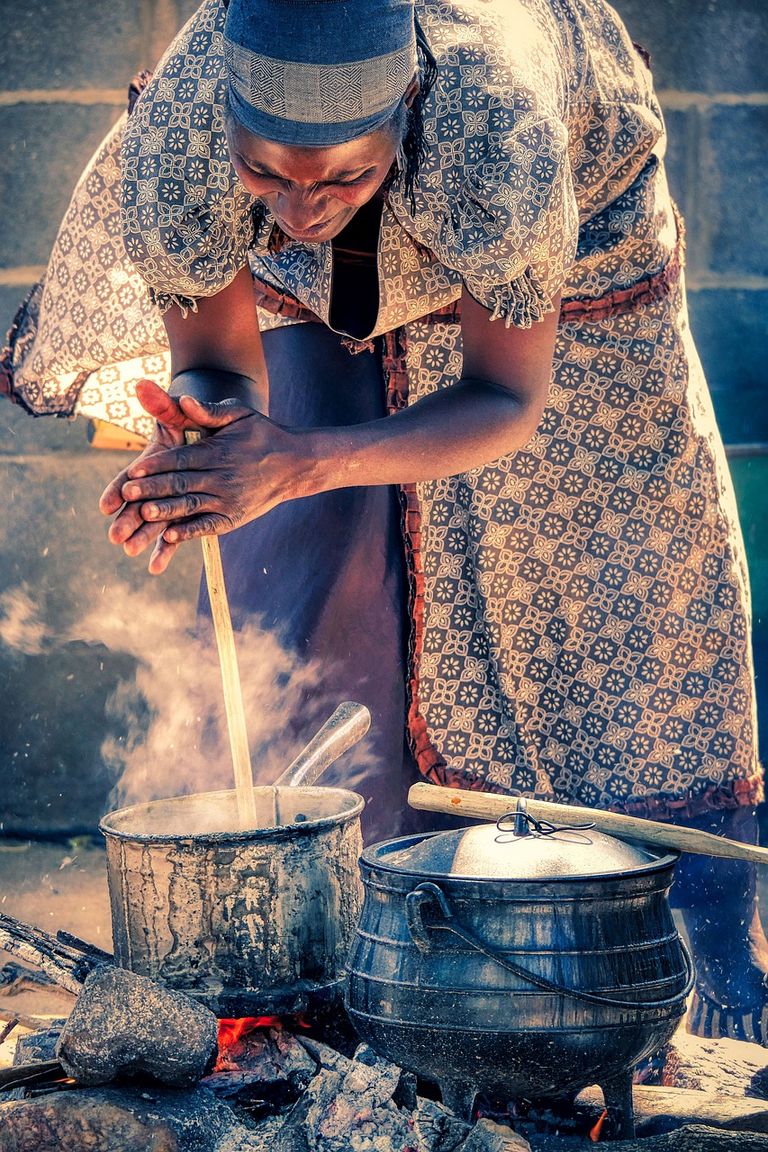
sourceAkara: Akara, also known as bean cakes or bean fritters, is a popular Nigerian snack made from peeled and ground black-eyed peas. The ground beans are mixed with spices, onions, and peppers, then deep-fried until golden brown. Akara is typically enjoyed with pap (ogi) or bread.
Pounded Yam and Egusi: Pounded yam is a starchy staple food in Nigeria. It is made by boiling yam tubers and pounding them into a smooth, dough-like consistency. Pounded yam is often served with egusi soup or other traditional Nigerian soups.
Efo Riro: Efo Riro is a flavorful Nigerian vegetable soup made with assorted vegetables such as spinach, kale, or amaranth leaves. It is often cooked with meat or fish, palm oil, and a variety of spices. Efo Riro is commonly eaten with pounded yam, eba, or rice.
Bitterleaf Soup: Bitterleaf soup, as the name suggests, is made from the leaves of the bitterleaf plant. The bitter leaves are thoroughly washed and cooked with assorted meats or fish, palm oil, and other ingredients to create a rich and slightly bitter soup. It is typically served with fufu or pounded yam.
Moi Moi: Moi Moi is a steamed bean pudding made from black-eyed peas. The beans are ground into a smooth paste, mixed with spices, onions, and peppers, and then steamed in banana leaves or foil. Moi Moi is often enjoyed as a side dish or a snack.
These are just a few examples of the many traditional delicacies found in Nigeria. The country's cuisine is incredibly diverse, and each region and ethnic group have their own unique dishes and cooking styles.
Significance of Nigerian delicacies
Nigerian delicacies hold significant cultural, social, and historical importance in the country. Here are some key significances of Nigerian delicacies:
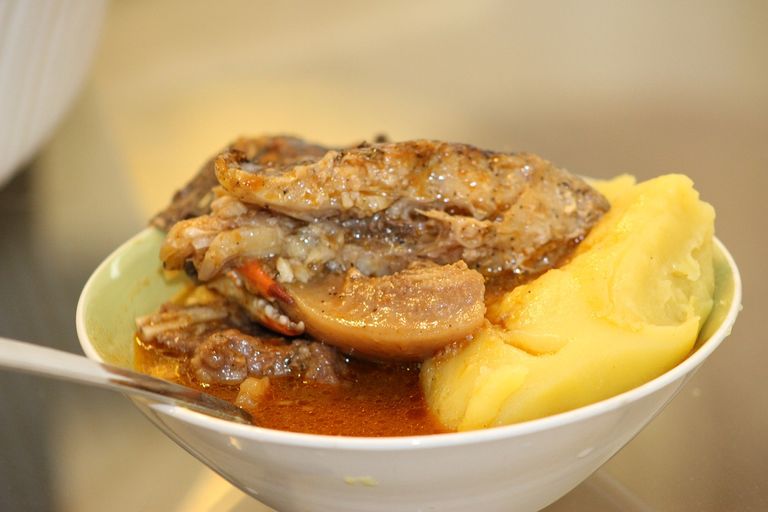
source
Cultural Identity: Nigerian delicacies are deeply rooted in the country's diverse ethnic and cultural heritage. Each dish represents the culinary traditions and flavors of specific regions and ethnic groups. Nigerian delicacies serve as a way for people to connect with their cultural identity and preserve their heritage through food.
Social Bonding: Nigerian delicacies play a crucial role in social gatherings, celebrations, and communal events. Sharing meals is a fundamental aspect of Nigerian culture, and traditional delicacies often serve as a centerpiece of these gatherings. They bring people together, strengthen social bonds, and foster a sense of community and togetherness.
Historical Significance: Nigerian delicacies often have historical significance, reflecting the country's past and the influence of various cultures. Many dishes have been passed down through generations, carrying the stories and traditions of Nigerian ancestors. They provide a connection to the past and serve as a reminder of the country's culinary evolution over time.
Economic Importance: Nigerian delicacies contribute significantly to the country's economy. The agricultural sector benefits from the demand for various ingredients used in traditional dishes, such as yam, vegetables, grains, and spices. Additionally, the food industry, including restaurants, street food vendors, and food markets, thrives on the preparation and sale of these delicacies, providing employment opportunities and economic growth.
Tourism and Cultural Exchange: Nigerian delicacies have gained international recognition and have become a source of attraction for tourists. Visitors to Nigeria often seek to experience the local cuisine, which promotes cultural exchange and tourism. Nigerian delicacies help showcase the country's culinary diversity and unique flavors to the world.
Health and Nutrition: Nigerian delicacies often utilize locally sourced ingredients, including a variety of vegetables, grains, and proteins. These dishes can provide a balanced and nutritious diet, rich in vitamins, minerals, and fiber. Traditional cooking methods, such as steaming and grilling, are often employed, which can help retain the nutritional value of the ingredients.
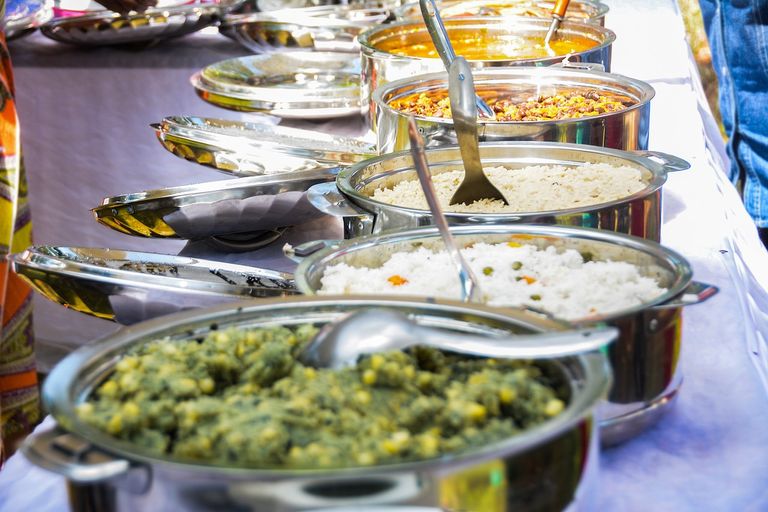
source
Nigerian delicacies hold great significance in terms of cultural identity, social bonding, historical value, economic importance, tourism, and health. They are not only delicious but also serve as a gateway to understanding the diverse and vibrant culture of Nigeria.
Different types of Nigerian delicacies eaten by different cultures
Nigeria is a diverse country with numerous ethnic groups, and each culture has its own unique delicacies. Here are some examples of Nigerian delicacies that are popular among different cultures:
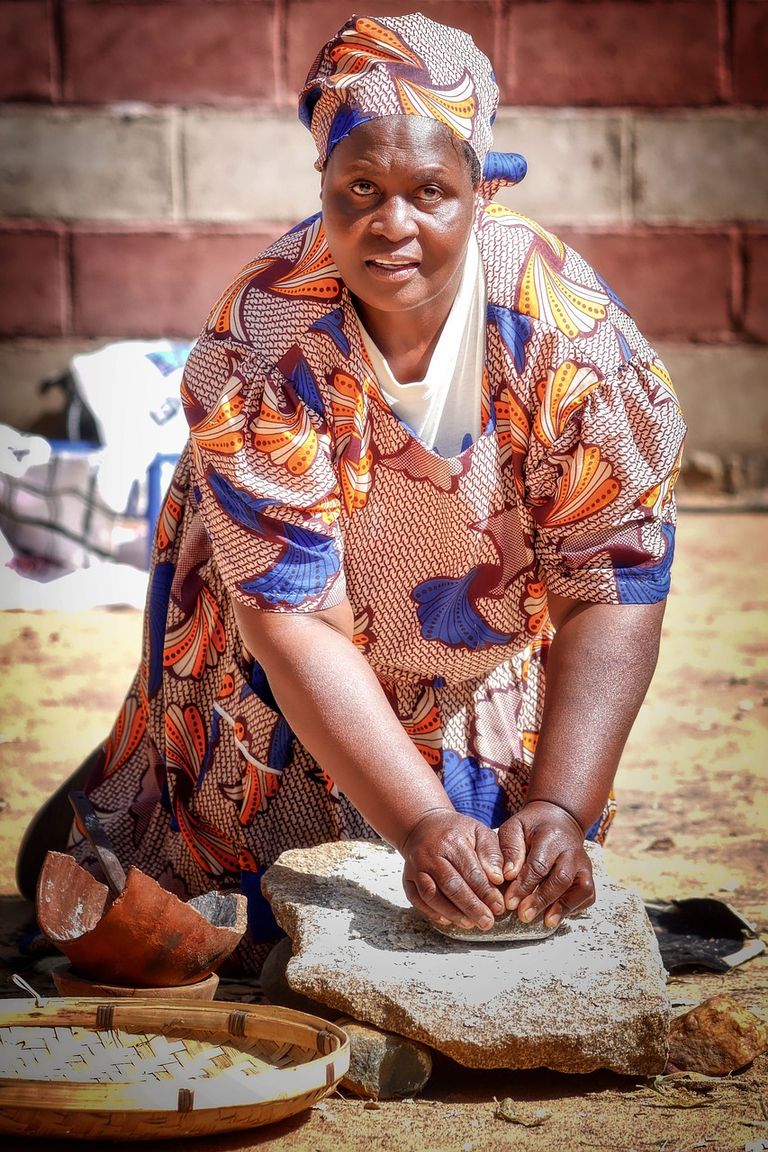
source
Igbo Delicacies:
- Ofe Nsala: A delicious Igbo soup made with fresh fish, yam, and spices.
- Abacha: Also known as African salad, it is made from dried shredded cassava and garnished with vegetables, palm oil, and other ingredients.
- Ukwa: A nutritious dish made from African breadfruit, typically cooked with potash and served with palm oil sauce.
Yoruba Delicacies:
- Amala: A popular Yoruba dish made from yam flour or cassava flour, often served with a variety of soups such as Ewedu and Gbegiri.
- Efo Riro: A Yoruba vegetable soup made with assorted vegetables, meat, fish, and palm oil.
- Adalu: A combination of beans and corn, seasoned with spices and typically cooked together to make a hearty stew.
Hausa/Fulani Delicacies:
- Tuwo Shinkafa: A staple dish made from cooked rice flour, often served with various soups such as Miyan Kuka (Baobab Leaf Soup) or Miyan Taushe (Pumpkin Soup).
- Kilishi: A type of dried and spiced meat, similar to beef jerky but with unique Hausa flavors.
- Masa: A fermented rice cake, usually served with miyan taushe or any other desired sauce.
Calabar Delicacies:
- Edikang Ikong: A nutritious soup made with a combination of pumpkin leaves (Ugu) and water leaves, often cooked with various proteins like meat, fish, or periwinkle.
- Afang Soup: A delicious soup made from Afang leaves, usually cooked with palm oil, various meats, and fish.
- Ekpang Nkukwo: A traditional Calabar dish made from grated cocoyam and wrapped in leaves, then boiled or steamed.
Tiv Delicacies:
- Iwaji: A traditional Tiv dish made from pounded yam and sesame leaves, often served with egusi or other soups.
- Tor Tiv Soup: A popular Tiv soup made with groundnuts, often cooked with smoked fish, meat, or vegetables.
- Kwose: A Tiv snack made from roasted cornmeal mixed with ingredients like groundnuts, sugar, or honey.
Efik Delicacies:
- Edesi Isip: A popular Efik delicacy made from grated cocoyam and spices, wrapped in leaves and boiled or steamed.
- Afia Efere: A delicious white soup made with fish, periwinkle, or other seafood, cooked with various spices and thickened with pounded yam or plantain.
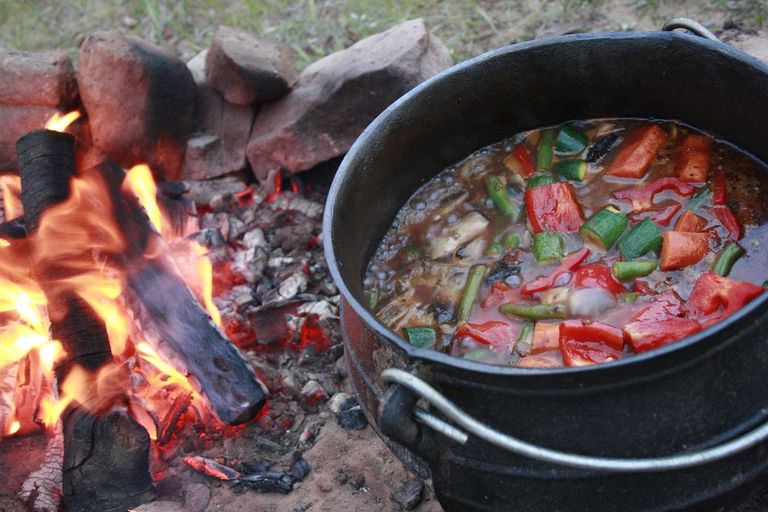
source
Ibibio Delicacies:
- Editan Soup: A flavorful Ibibio soup made with Editan leaves, which are similar to the Ugu leaves, often cooked with fish, meat, and other ingredients.
- Abak Atama Soup: A traditional Ibibio soup made with Atama leaves, palm fruits, and other ingredients, typically enjoyed with pounded yam or garri.
Itsekiri Delicacies:
- Oghwo Soup: A delicious Itsekiri soup made with dried or fresh fish, periwinkle, and other ingredients, typically served with pounded yam or starch.
- Ojojo: Itsekiri-style plantain fritters, made by grating plantains and mixing them with spices before deep-frying.
Ijaw Delicacies:
- Pepper Soup: A spicy soup commonly enjoyed by the Ijaw people, made with fish, meat, or seafood, flavored with various aromatic spices.
- Ukodo: A traditional Ijaw yam pepper soup, often cooked with fresh fish, palm oil, and other ingredients, providing a warm and comforting meal.
Berom Delicacies:
- Shiloh Soup: A special Berom soup made with groundnut paste, spices, and vegetables, often cooked with meat or fish.
- Gurasa: A popular Berom snack made from fermented dough, typically deep-fried and enjoyed with various sauces or soups.
- Nupe Delicacies:
- Miyan Kuka: A traditional Nupe soup made from powdered baobab leaves, often cooked with meat, fish, or poultry and enjoyed with tuwo or rice.
- Gwate: A Nupe steamed bean pudding made from black-eyed peas, similar to Moi Moi, but with its own unique flavors and spices.
These additional delicacies highlight the culinary diversity found across different Nigerian cultures, each offering its own distinct flavors and cooking styles.
We still have lots more!!!!
Different seasons for eating such traditional delicacies
In Nigeria, some traditional delicacies are associated with specific seasons due to the availability of ingredients or cultural practices. Here are a few examples of Nigerian traditional delicacies and the seasons when they are commonly enjoyed:

source
New Yam Festival (August to October):
- Yam dishes: During the New Yam Festival, which typically takes place between August and October, various yam dishes like pounded yam, yam porridge, and roasted yam are celebrated. It is a time to give thanks for the yam harvest and indulge in yam-based delicacies.
Christmas Season (December):
- Pepper Soup: Pepper soup is a popular Nigerian delicacy commonly enjoyed during the Christmas season. It is a hot and spicy soup made with different meats, fish, or poultry, flavored with aromatic spices. It is often served as an appetizer or main course during festive gatherings.
Rainy Season (June to September):
- Okra Soup: Okra soup is often associated with the rainy season in Nigeria. Fresh okra is abundant during this time, and it is used to prepare delicious and nutritious soups. Okra soup is usually cooked with various proteins, such as fish, meat, or seafood, and enjoyed with fufu or eba.
Easter Season (March or April):
- Moi Moi: Moi Moi is a steamed bean pudding that is commonly prepared and enjoyed during the Easter season in Nigeria. It is often served as a side dish during Easter celebrations, alongside other festive delicacies.
Harmattan Season (November to February):
- Suya: The Harmattan season, characterized by dry and dusty weather, is a popular time for enjoying suya. Suya is a Nigerian street food made from skewered and grilled meat, seasoned with a flavorful blend of spices. The dry climate of the Harmattan season is ideal for outdoor grilling and enjoying this spicy delicacy.
Festive Seasons:
- Jollof Rice: Jollof rice is a versatile Nigerian delicacy enjoyed throughout the year, but it is particularly popular during festive seasons like Christmas, Eid al-Fitr, and weddings. It is often served at celebratory events and gatherings.
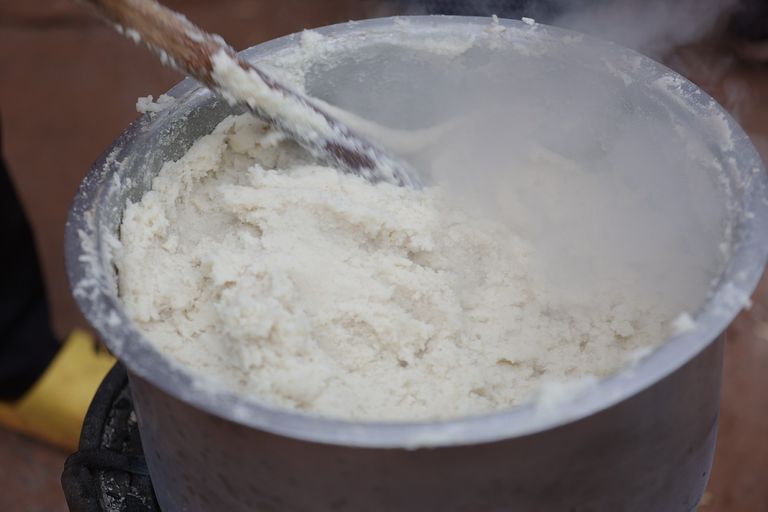
source
- Jollof Rice: Jollof rice is a versatile Nigerian delicacy enjoyed throughout the year, but it is particularly popular during festive seasons like Christmas, Eid al-Fitr, and weddings. It is often served at celebratory events and gatherings.
Let's all know that while these associations exist, many Nigerian delicacies can be enjoyed year-round, as they have become widely available and are loved by people regardless of the season. The specific seasons mentioned above are more traditional or cultural in nature, but nowadays, people enjoy these delicacies throughout the year.
Nigerian traditional delicacies hold significant cultural, social, and historical importance in the country. They reflect the diverse ethnic and cultural heritage of Nigeria and serve as a source of pride and identity for different communities.
These delicacies play a vital role in social bonding, communal gatherings, and celebrations, bringing people together and fostering a sense of community. They also have economic importance, contributing to the agricultural and food industries in Nigeria. Nigerian delicacies showcase the country's culinary diversity, attracting tourists and promoting cultural exchange. Furthermore, these delicacies offer not only delicious flavors but also provide a connection to the past and serve as a reminder of the country's rich culinary traditions.
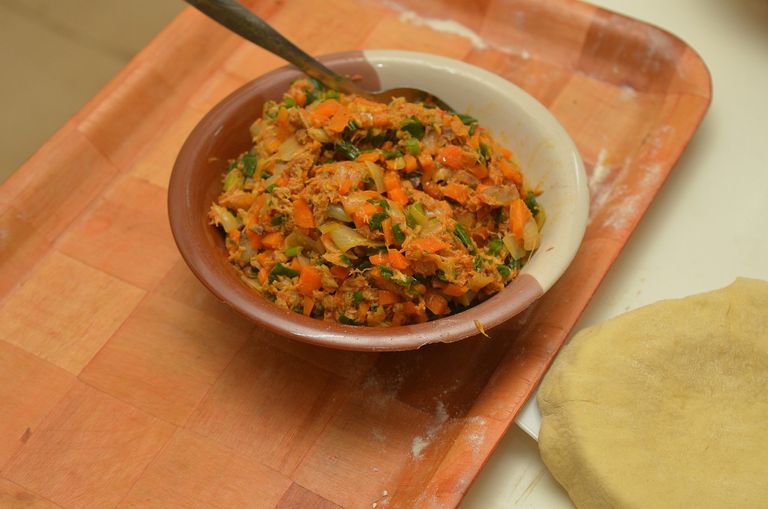
source
Conclusion
Whether enjoyed during specific seasons or year-round, Nigerian delicacies are cherished for their unique tastes, nutritional value, and the stories they tell about the country's cultural heritage.